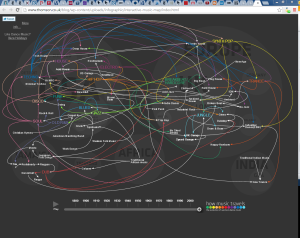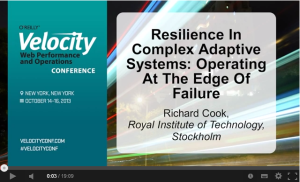From: Paul Nicolarakis [mailto:paul.nicolarakis@outlook.com]
Sent: Thursday, 24 October 2013 8:09 PM
To: ‘Dickon Smart-Gill’
Subject: RE: Singpaore
Beautifully captured Dickon, and thank you for the eBook (it won’t go anywhere).
References for some of my contributions:
– Online CBT pioneer: Prof. Helen Christensen/Black Dog Institute > blackdoginstitute.org.au // moodgym etc.
– Research on protein and satiety in locusts, mice and men > Stephen Simpson
– The Vitality Group (Sth Africa) – 15 min intro video on front page helpful, similarly 1hr webinar http://www.thevitalitygroup.com/
– A short White Paper on Health Insurance billing analytics
Things we didn’t even get to, but expect to at some stage:
– Antifragile by Nassim Nicholas Taleb (author of Black Swan) >> totally rocked my world, suspect you might enjoy
– Very strong case for plant based diet by Michael Greger MD
– 4 Hour Body by Timothy Ferris >> where I started my body hacking journey (slow carbs, protein, cruciferous, blow out, but also stuff on sex etc.)
– Proteus Digital Health – end to end health monitoring, including blood composition via skin patches (warning: interesting but potential ufero)
– Scanadu – personal medical tricorder
– Ginger.io – behavioural health analytics platform
– Omada Health – evidence-driven, online preventive health programs
– Eatery by Massive Health – recently acquired by Jawbone, but previously doing some interesting things with diet, analytics and amazon’s mechanical turk (warning: interesting but potential ufero)
– Kaggle – data modelling competition platform (I’m mates with its founding chairman)
Rough vision for what I want to get going over the next 5 years (from diary post):
Over the next five years, I want to develop a health-generating, outcome-remunerated, scalable, for-profit enterprise dedicated to the effective (i.e. live outcome data and analytics, a la rapid learning health system), efficient (i.e. probably not involving doctors) optimization of population health through the application of mobile-mediated behavioural economics, epigenetics, ubiquitous sensors, real time, predictive analytics and the social determinants of health.
From: Dickon Smart-Gill [mailto:dickon@outlook.com]
Sent: Thursday, 24 October 2013 7:11 PM
To: ‘Paul Nicolarakis’
Subject: RE: Singpaore
Notes from our lunch
CBT apps are as effective as face to face with professionals. Mood Gym
Body by science – Doug McGuff – high intensity, simple exercises.
Eatstop eat attached. A quick and easy read. I bought it, so please don’t forward it on to others just in case my name is encoded into the pdf somehow.
Leangains.com – 16-8 protocol. Obviously this guy is genetically gifted, but the fasting technique works for me too. The key is ‘never any guilt’ if you mess up one day, simply forget it and try the next day.
80/20 rule for weight loss 80% being diet, the 20% being exercise.
Vitality – south Africa – interesting model to approach insurance companies.
Your potential opportunity with the data analysis for medical insurance claims/fraud. Possibility for the same sales approach that they used in the stock trading world.
Cauli dabbed with macadamia oil in an 210 degrees fan oven. Crunchy yet still moistish in the centre. Excellent snack food. I suggested adding turmeric (curcumin) for it’s anti inflammatory characteristics. Though not to modify the taste as that is already in order.
Standing desks (we both use them and see the benefits).
Feel free to add what I missed.
Dickon
From: Paul Nicolarakis [mailto:paul.nicolarakis@outlook.com]
Sent: Wednesday, 23 October, 2013 7:18 PM
To: ‘Dickon Smart-Gill’
Subject: RE: Singpaore
Great. How about 1230 for something meaty at:
Royal Mail
2 Finlayson Green
Ascott Raffles Place
http://www.ladyironchef.com/2012/12/the-royal-mail-prime-ribs-singapore/
From: Dickon Smart-Gill [mailto:dickon@outlook.com]
Sent: Wednesday, 23 October 2013 7:02 PM
To: Paul Nicolarakis
Subject: Re: Singpaore
Looking good for lunch. Name the time and place. I’m easy.
Sent from my iPhone
On 23 Oct, 2013, at 15:21, “Paul Nicolarakis” <paul.nicolarakis@outlook.com> wrote:
How are you looking for tomorrow? Any chance of lunch or afternoon instead of evening?
From: Paul Nicolarakis [mailto:paul.nicolarakis@outlook.com]
Sent: Friday, 18 October 2013 10:56 AM
To: ‘Dickon Smart-Gill’
Subject: RE: Singpaore
done
From: Dickon Smart-Gill [mailto:dickon@outlook.com]
Sent: Thursday, 17 October 2013 12:59 PM
To: Paul Nicolarakis
Subject: Re: Singpaore
Pencil in the evening of the 24 th.
Sent from my iPhone
On 17 Oct, 2013, at 8:15, “Paul Nicolarakis” <paul.nicolarakis@outlook.com> wrote:
I’m currently leaving on the 25th Dickon, but may stay longer… shall we try for something on the 24th?
Cheers, Paul
From: Dickon Smart-Gill [mailto:dickon@outlook.com]
Sent: Thursday, 17 October 2013 12:01 PM
To: ‘Paul Nicolarakis’
Subject: RE: Singpaore
Hi Paul,
I’m in Bangkok now.
However, on the 24th, 25th 26th, I’m in Singapore.
Does that overlap with your travel?
Dickon
From: Paul Nicolarakis [mailto:paul.nicolarakis@outlook.com]
Sent: Thursday, 17 October, 2013 5:31 AM
To: ‘Dickon Smart-Gill’
Subject: Singpaore
Checking in again… will be in Singapore next week, let me know if you’re around for a bevvy. Cheers, Paul
From: Dickon Smart-Gill [mailto:dickon@outlook.com]
Sent: Saturday, 14 September 2013 12:47 PM
To: ‘Paul Nicolarakis’
Subject: RE: g’day
I’m in Bangkok right now and will still be in Bangkok on Wednesday.
Thanks for the invite, if I were in singapore I would definitely have met up with you.
Dickon
From: Paul Nicolarakis [mailto:blackfriar@gmail.com]
Sent: Saturday, 14 September, 2013 5:05 AM
To: Dickon Smart-Gill
Subject: g’day
Hey Dickon,
Am in town through to Wednesday – would be good to catch up if you’re around?
Cheers, Paul


